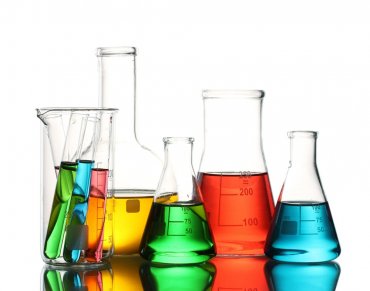
Brazils government is considering a proposed overhaul of its regulations of chemicals – a step that would be in line with the growing numbers of nations giving greater scrutiny to chemicals and which would create new requirements for lubricant companies and others that use them.
The Brazilian proposal was recommended in October by the countrys chemical safety commission, Conasq, and remains under scrutiny despite reports of it possibly being ratified in April.
A spokesperson from the Ministry of Environment told Lube Report that the bill is actually not at the top of its priorities right now, explaining that the ministry is focused on other environmental issues.
The ministry has worked on this regulation of industrial chemicals since 2012 and, according to Denise Hamu, Brazils environment representative to the United Nations, has made significant advances in recent years to meet international expectations on environmental protection.
The bills main objective is to establish provisions for the registration, evaluation and monitoring of chemicals, as well as to impose sanctions for non-compliance and institutional responsibilities for execution.
Although the bill does establish roles and responsibilities for industry and government, it will be necessary to strengthen institutional capacity in order to implement the law and achieve a sound management of chemicals in Brazil, Hamu said in a ministry news release.
The bill defines procedures for cataloging substances that are considered hazardous to health and the environment and presents a process for finding the most environmentally appropriate way to manage these materials. Mixtures such as pesticides, cosmetics, pharmaceuticals and fertilizers are to be exempt.
The measure also calls for creating a National Inventory of Chemical Substances that will list suppliers, the identity of the substance, recommended uses and the volume and range of the hazard classification known as GHS (Globally Harmonized System of classification and labelling of Chemical Products).
If it becomes law, opinions of the regulation are bound to vary, industry insiders said. Some lubricant companies will likely say that regulations are going too far and others may claim that it isnt far enough.
Many still want a relatively free market and will dislike barriers to new chemical technologies in which they could source to gain advantage, said James Eggenschwiler, director of global trade for U.S.-based consulting firm The Redstone Group. However, local players will likely relish the hurdle that new substances will face as the new regulations are more likely to impact foreign competitors.
The proposed regulation may also be disliked by local companies sourcing from foreign competitors to gain advantage over local counterparts producing staple chemical product varieties, but others with no ties to foreign firms will likely relish them, he said.
Some local lubricant companies were reluctant to comment on the matter at this time. As legislation has not been determined, we prefer to not comment for now, Iconic Lubrificantes Supply Coordinator Guilherme Torres told a reporter.
Some have compared the proposed regulation to the European Unions REACH (Registration, Evaluation, Authorization and Restriction of Chemicals) regulation, but there are significant differences between the two.
The EUs REACH requires all chemicals to be registered with fairly robust data, even for low annual tonnage, and does not significantly distinguish new substances in the process, Eggenschwiler said.
Brazil focuses the most predictable robust evaluation on new substances, but also intends to identify existing substances that require the substantial data for robust evaluation. The political risk associated with requiring costly evaluation of existing chemicals is more significant.
Brazils chemical industry association, Abiquim, which represents approximately 160 companies, said the proposed law should be similar to that of the Chemicals Management Plan of Canada, a program that selects and prioritizes chemicals on which to focus, mainly for the purpose of risk management.
Brazil has signed several international agreements on the subject matter and is collaborating closely with Argentina. Both countries signed a memorandum of understanding just before Brazil announced its bill, and it appears that they have agreed to keep their requirements and approach practically identical. The draft legislation is vague in details, leaving room for coordination between the countries.
While Brazil, Colombia and Chile are currently considering or adopting regulatory regimes for chemicals, Argentina and Ecuador are just beginning their processes. Much of the South American interest has been spurred by these countries seeking to join the Organization for Economic Co-operation and Development, an intergovernmental economic organization with 36 member countries.
The organization requires members to follow specific policies regarding the management of chemicals. Currently, Chile and Colombia are OECD members, and Brazil formally requested full membership last year.
It wont matter what the draft legislation says if it is not approved by Brazils congress. Federal representatives could hold public hearings to gauge public opinion or just pass the bill without further considerations.
Although the bill did have non-profit, industry and public support during its drafting in October, a new administration – that of President Jair Messias Bolsonaro – took office in January. It seems to be more receptive to deregulation.